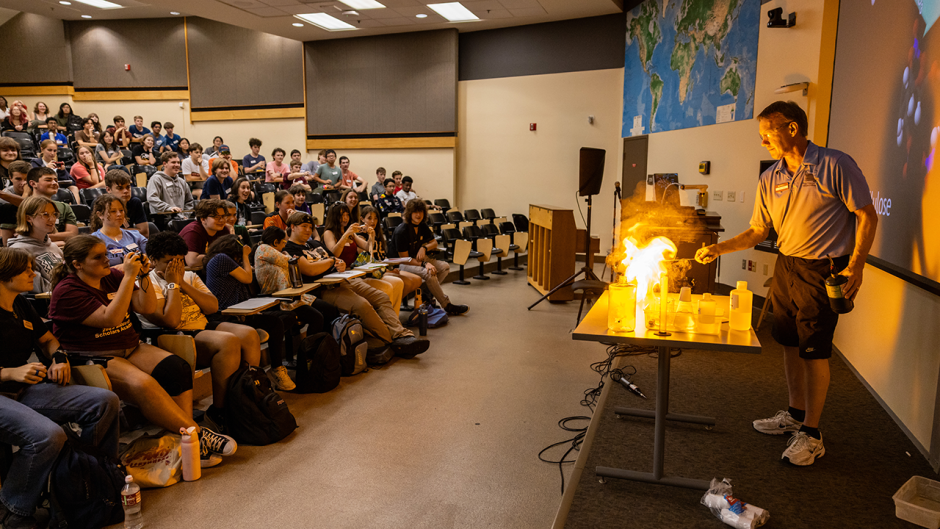March 24, 2021
Contact: Brian Consiglio, 573-882-9144, consigliob@missouri.edu
A new study by the University of Missouri has found that using interactive, pre-recorded storybooks can improve the vocabulary of at-risk preschoolers – good news for getting a vulnerable population of children ready for school.
“While we are working with children who are only 4 or 5 years old, we teach them the vocabulary words they will need to know when they eventually enter elementary or middle school,” said Elizabeth Kelley, an assistant professor in the MU School of Health Professions, who collaborated with Howard Goldstein at the University of South Florida, on the project. “If we can teach them more challenging words while they are young, we can give them the language skills they will need to be ready for school and set them up for success throughout their lives.”
In their study, Kelley and Goldstein developed Story Friends, an audio-based intervention program designed to improve vocabulary knowledge of at-risk preschoolers. The program was implemented into 24 preschool classrooms in Missouri and Florida, where select students listened to audio recordings as they followed along in storybooks that had embedded vocabulary lessons within the stories.
The result: the preschoolers learned specific words from the stories such as ‘disappointed,’ ‘enormous,’ ‘brave’ or ‘protect.’ These were common, yet challenging words the preschoolers had previously not understood.
“We know the experiences students have early on can greatly influence their future performance in school and their overall health and well-being,” Kelley said. “If we can give teachers tools that help them deliver effective instruction, we can help kids have the language skills they need to be successful in school and in life.”
Research has shown a preschooler’s vocabulary knowledge is strongly correlated with their future reading comprehension capabilities, and children with strong language skills not only have better academic outcomes, but they also are less likely to engage in troubling classroom behavior.
Although the intervention was designed to specifically target individuals struggling with language skills, the preschool teachers reported that using the pre-recorded storybooks with embedded vocabulary lessons in their classrooms helped expand the word banks for all of their students.
“Our primary goal is to focus on assisting kids with language concerns, but we found that this strategy can be utilized with all preschoolers,” Kelley said. “Going forward, this strategy can be used to help young students expand their language skills in general, and at-risk students with limited vocabularies can be identified for more specialized, tailored training and additional support.”
Kelley plans to expand her research by examining the long-term effects of her intervention on preschoolers’ vocabulary development as they enter kindergarten, elementary school and beyond.
“Feasible implementation strategies for improving vocabulary knowledge of high-risk preschoolers: Results from a cluster-randomized trial” was recently published in the Journal of Speech, Language and Hearing Research. Funding for the study was provided by the U.S. Department of Education’s Institute of Education Sciences.


![062625_CEI Aerial View_email-cropped[29] (1)](https://showme.missouri.edu/wp-content/uploads/2025/06/062625_CEI-Aerial-View_email-cropped29-1-940x529.jpg)


